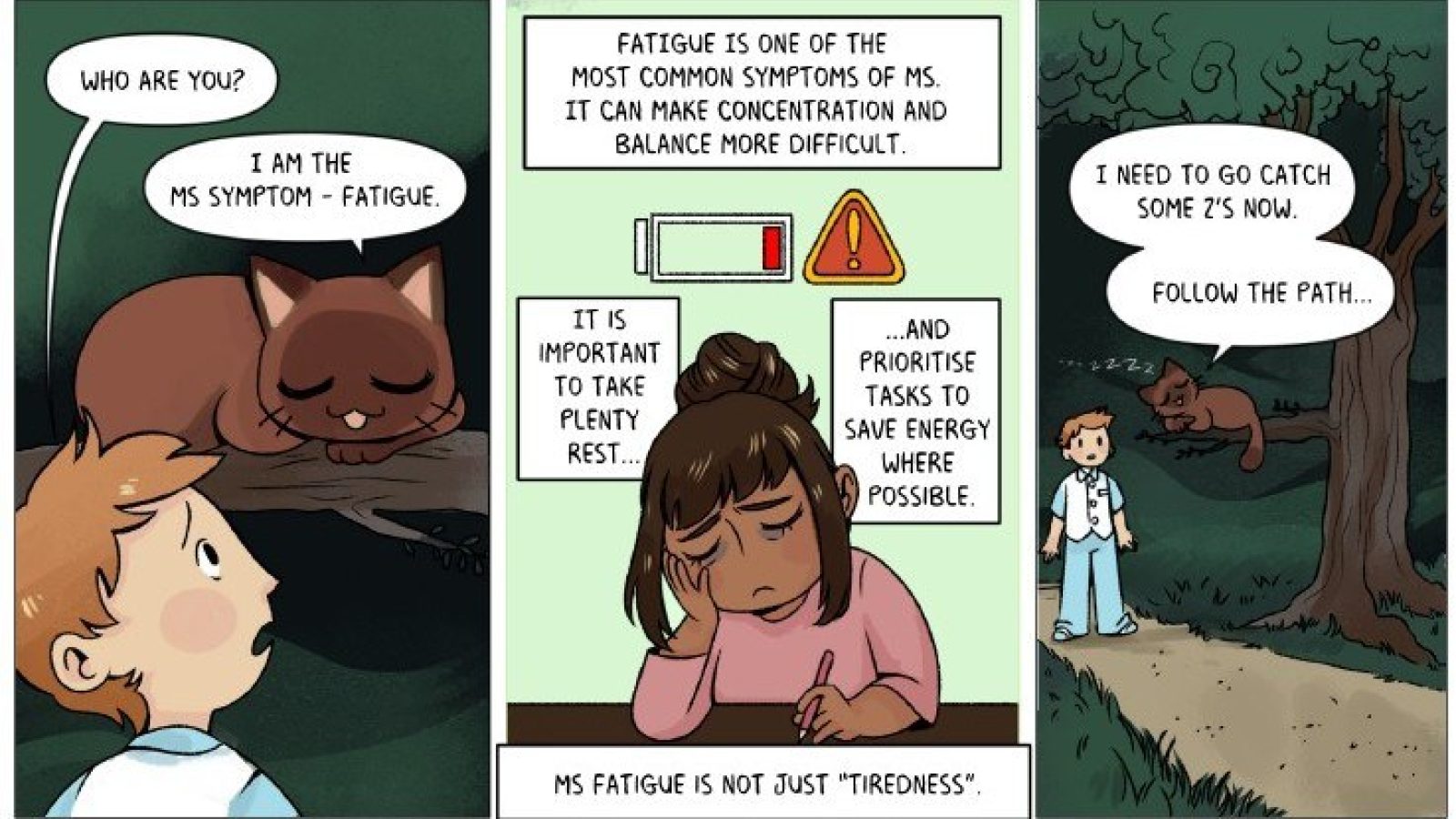A University of Aberdeen student has come up with a creative way to educate the public about the ‘invisible symptoms’ of a condition that affects more Scots than almost anywhere else in the world.
Postgraduate student, Claire Robertson, and a team of health professionals and comic artists designed a comic to raise awareness of multiple sclerosis (MS), a condition that is estimated to affect more than 17,000 people in Scotland.
Inspired by her dad's experience of living with the condition, Claire used the unique medium to describe the everyday struggles faced by people with MS.
The comic, titled ‘Through the MS Looking Glass: Navigating the Unseen’, highlights the ‘invisible’ or hidden symptoms of MS, told through an Alice in Wonderland-style narrative, where familiar characters represent different symptoms.
“I wanted to create a health comic on multiple sclerosis because my dad has MS and was diagnosed in 2011,” says Claire, a third year PhD student from the School of Psychology. “As my PhD project is all about how to make effective and engaging health information through the use of comics, I really wanted to be able to make my own health comic during the project process that can have a dual purpose – be used as an experimental material in my research but also can get people engaged with health information.”

Claire Robertson
Determined to support other families, children and loved ones of those with MS, Claire wanted to tell a story that would inform others about the hidden aspects of the condition.
She explains: “I was conscious that I didn’t just want to make the comic about my family’s experience with MS, so I reached out to MS charities to ask them which health topics they felt were either underrepresented or poorly communicated.
“One of the topics on the shortlist was ‘invisible’ symptoms of MS, and I felt as though a comic could do a really nice job of making these invisible symptoms concrete and visible through visual metaphors and raising awareness of the impact that these symptoms can have on daily life for people with MS.”
Invisible symptoms describe aspects of MS that people struggle with but aren’t immediately apparent to others. They include pain, fatigue, brain fog, bladder and bowel difficulties, dizziness and mental health challenges.
Following the Alice in Wonderland narrative, the invisible symptoms are embodied by characters akin to the ones from Wonderland.
“The reasoning for this is embedding unfamiliar concepts in a story that is likely familiar to the majority will hopefully make it slightly less daunting and ‘new’.”

Claire continues: “I am very aware that if someone hasn’t heard of MS before, the health information may seem quite abstract and confusing – like if you were picking up a leaflet about a health condition you didn’t really know about.
“So, throughout the comic, I have tried to use accessible language and avoid unnecessary jargon. I hope this will make it a bit easier for the reader to understand and enhance their engagement through storytelling and impactful visuals.”
Claire adds: “The comic’s main message is that everyone’s MS journey is unique and it is important to be supportive and understanding of the struggles people are going through.
“Even if you can’t visually see what symptoms someone is dealing with, it doesn’t mean they aren’t there and having a big impact on daily life.”
The comic is supported by the University of Aberdeen, University of Dundee, the MS Trust, and the Anne Rowling Regenerative Neurology Clinic at the University of Edinburgh. The artwork was created by Cat Laird and Ashling Larkin from CHIP Collective. You can download ‘Through the MS Looking Glass: Navigating the Unseen’ here.
Claire’s PhD is funded by the Economic and Social Research Council (ESRC).